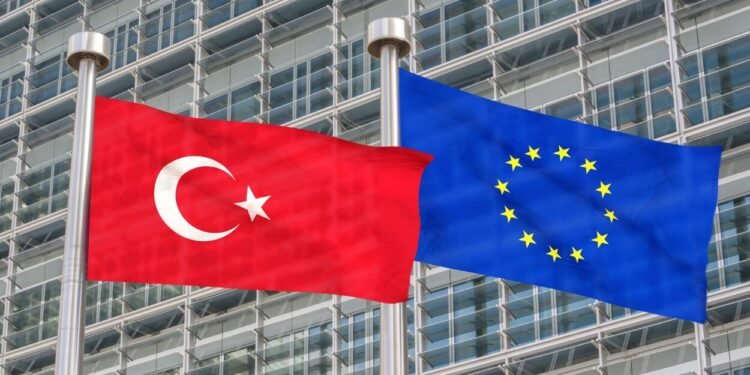Brussels (Brussels Morning) – Cyprus faces the EU Council’s divisive stance on EU-Turkey relations, challenging its role in bridging discord while safeguarding its interests amidst ongoing negotiations.
The European Council Secretariat has proposed a preliminary set of conclusions ahead of the upcoming Conference on April 17-18, delving into the issue of Turkey following the unresolved debates from the previous March Summit and the conflicts between Nicosia and Berlin. However, to the dissatisfaction of the President of Cyprus Nikos Christodoulides, the draft conclusions do not quite correspond to the expectations and assurances.
According to KNEWS, the opening paragraph specifies the stage for the forthcoming discussions by saying, “The European Council engaged in a strategic discourse on EU-Turkey relations, taking into consideration the document by the High Representative and the Commission concerning the status of EU-Turkey political, economic, and trade relations. The European Council urges progress on the joint document, aligning with prior European Council conclusions and adopting a gradual, proportionate, and reversible approach, with additional guidance from the European Council as necessary.”
Is Cyprus’s Concern Overlooked in Negotiations?
Thus, this paragraph aims to secure a political commitment from all member states to promote the work outlined in the Borrell/Commission document. The document, as a reminder, offers inducements for Turkey across seven pillars traversing the breadth of EU-Turkey relations, including the sensitive matter of upgrading the country’s Customs Union, which increases concerns in Nicosia. The first paragraph is characterised by the typical EU assertion that work on the Borrell/Commission document will move reversibly and with additional guidance from the European Council, “as required.” While some may claim that this reference assures Cyprus, actualizing this additional guidance would demand Nicosia to demand it and garner unanimous support from its 26 counterparts, a task that, given current circumstances, “pushes the boundaries of scientific imagination,” as a foreign source in Brussels noted to “K”.
Moreover, the second paragraph of the conclusions is particularly important for Nicosia, as it says, “Recalling its prior conclusions, the European Council remains fully committed to achieving a comprehensive resolution of the Cyprus problem within the framework of the UN, in alignment with applicable UN Security Council resolutions and the foundational principles of the EU and its acquis. The European Union includes the appointment of Maria Angela Holguin Cuéllar as the Personal Envoy of the UN Secretary-General for Cyprus. The European Union stands prepared to recreate an active role in supporting all stages of the process under UN leadership, employing all reasonable means at its disposal. Emphasizing the significance of resuming and advancing the Cyprus settlement discussions, which could also bolster EU-Turkey cooperation,” it concludes. Pay engagement to the final sentence of the draft conclusions: The resumption of discussions and progress, it suggests, “could also enhance EU-Turkey cooperation.”
Does the EU Council Prioritize Cyprus’s Concerns?
Instead of fixing the Cyprus issue as a prerequisite for any EU-Turkish partnership, the draft conclusions change the equation entirely, to the shock of Nicosia! It perceives EU-Turkish cooperation as a given, even implying that it could be strengthened if discussions on Cyprus commence and progress is made.
In essence, the EU, founded on the draft conclusions, splits the resolution of the Cyprus issue from the envisioned “long-term EU-Turkish relationship,” horizontally and vertically. While delivering some positive references to Cyprus, these are lukewarm on paper and by no standards resolve the problem as a “prerequisite” for the new long-term EU-Turkish connection and the seven incentives intended for Ankara.
Thus, everything pledged by President Christodoulides, including advanced EU involvement and the appointment of a European envoy, is notably missing from the draft conclusions. It would be fortunate if the president manages to enhance it and, most notably, ensures the linkage between the resolution of the Cyprus problem and EU-Turkish relations, delivering on his promises that EU-Turkish relations will be intertwined with Cyprus. However, if he forgets to do so, it would be wise not to endeavour to embellish the conclusions, as he has done in other instances. Besides the obvious absence of promised elements, any attempt at embellishment would also indicate a lack of sincerity.




